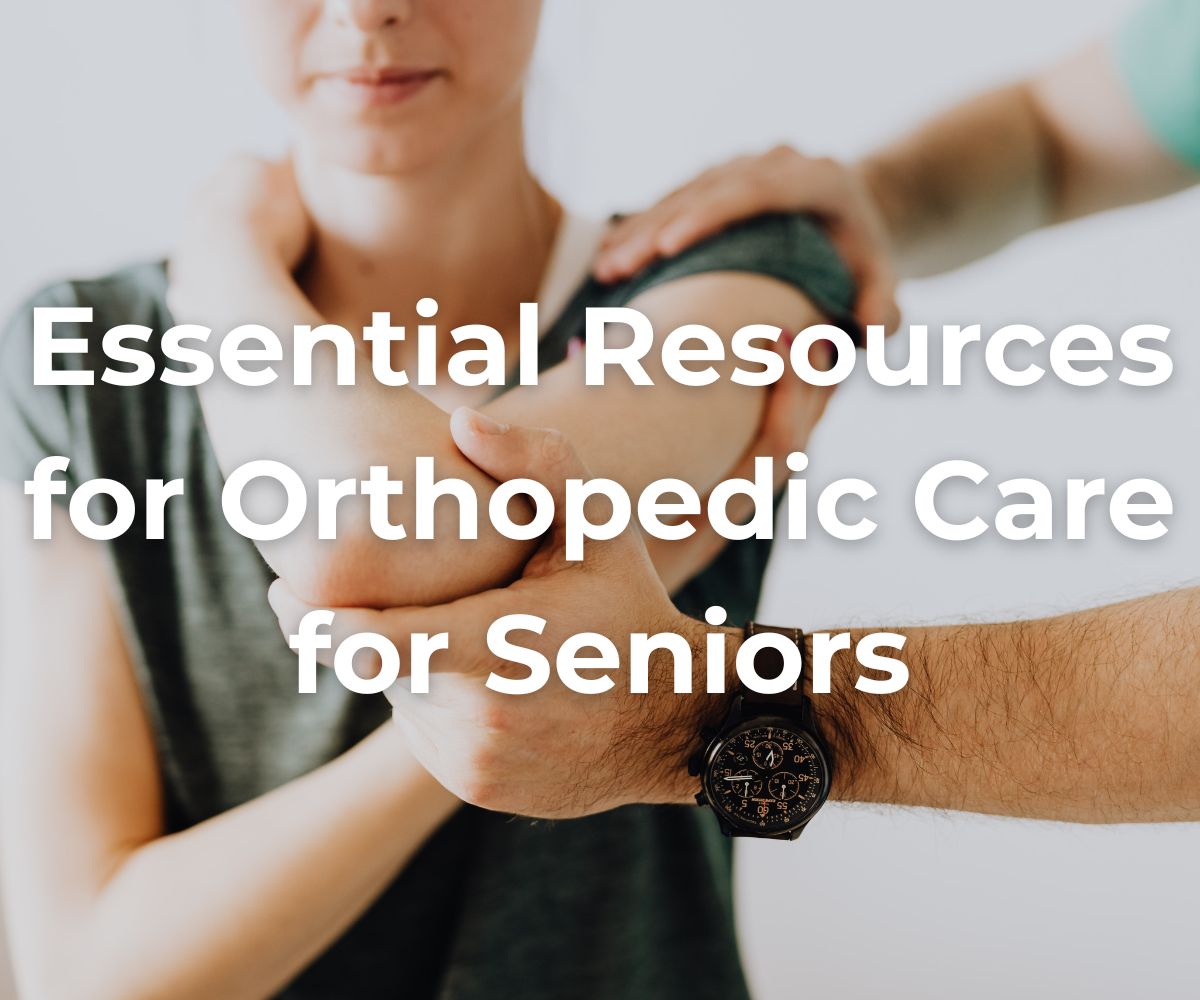essential resources for orthopedic care for seniors
Description
A Senior's Toolkit: Essential Resources for Orthopedic Care
As we age, our bodies inevitably encounter a variety of challenges, with the musculoskeletal system being no exception. Seniors are particularly vulnerable to orthopedic issues such as arthritis, osteoporosis, and fractures. Therefore, it becomes essential for older adults and their caregivers to have access to comprehensive orthopedic care resources.
In this article, we will explore the realm of orthopedic health for seniors, from understanding the basics to knowing where to find expert care and how to manage treatment from the comfort of home. Keep reading to ensure that you or your loved ones are armed with the best information and tools for maintaining optimum orthopedic health.
Understanding Orthopedic Care for Seniors
Orthopedic care plays a vital role in senior health, addressing issues affecting bones, joints, ligaments, and muscles. As aging increases wear and tear on the body, seniors face higher risks of fractures, arthritis, and mobility problems. Recognizing early signs of these conditions and understanding diagnostic tools like bone density and joint assessments can help prevent complications and maintain independence.
Equally important is knowing when to seek specialized help from experts such as New Jersey Orthopedic Surgeons, who can provide advanced treatments and care. Accessibility also matters—services offering rides for seniors make it easier for older adults to attend appointments and follow-ups, ensuring consistent orthopedic management without the burden of travel.
Essential Medical Professionals for Senior Orthopedic Health
Senior orthopedic health relies on a team of professionals working together to manage bone, joint, and muscle conditions. Primary care physicians often identify early mobility concerns and refer patients to orthopedic surgeons, who specialize in treating musculoskeletal disorders.
Physical and occupational therapists further support recovery by restoring function and helping seniors adapt their daily activities to physical limitations.
Rheumatologists and physiatrists add essential expertise, focusing on arthritis and rehabilitation needs. This collaborative network ensures that seniors receive both immediate and long-term care solutions. In specialized centers, multidisciplinary teams create personalized treatment plans designed to enhance mobility, reduce pain, and improve quality of life for older adults.
Navigating Orthopedic Treatment Options for the Elderly
Orthopedic treatments for seniors depend on the condition’s severity and type, with non-invasive options like pain management, physical therapy, and lifestyle adjustments often used first. Medications that ease pain and inflammation play a crucial role in preserving daily mobility and comfort. When conservative measures fall short, advanced surgical options such as joint replacements or arthroscopic procedures can restore function with reduced recovery times, thanks to modern medical innovations.
Postoperative care is vital to achieving lasting recovery. Rehabilitation programs help seniors rebuild strength and flexibility, while adherence to prescribed exercises and follow-up visits ensures optimal results. Engaging in open discussions with healthcare providers allows seniors to understand each treatment’s benefits, risks, and recovery expectations.
At-Home Orthopedic Support Tools and Equipment
Managing orthopedic conditions long-term often involves using supportive tools at home. Walkers, canes, and braces help seniors maintain independence and prevent injuries, while hot and cold therapy packs can ease chronic pain or post-surgical discomfort. Adaptive devices that reduce joint strain make daily routines safer and more comfortable, supporting mobility and confidence.
Innovative technology now enhances orthopedic care through wearable devices that track movement and encourage activity.
Telemedicine allows seniors to consult specialists without leaving home, ensuring continuous guidance and care. With so many tools available, consulting a healthcare provider helps identify the most suitable and safe equipment to support long-term mobility and joint health.
Community and Online Resources for Senior Orthopedic Care
Senior orthopedic health thrives through both community engagement and digital support systems. Local senior centers often host workshops on bone strength, joint exercises, and fall prevention, helping older adults stay active and informed.
These events not only educate but also build social connections among seniors navigating similar orthopedic challenges, reinforcing emotional and physical well-being.
Online resources further expand access to quality orthopedic care. Trusted health websites, forums, and digital libraries provide articles, videos, and research updates to guide seniors in managing conditions and exploring treatments. Telehealth services now bridge accessibility gaps, offering virtual consultations and follow-up care for those with mobility limitations or living far from healthcare facilities.
Overall, the journey to optimal senior orthopedic health involves understanding the issues, seeking the right medical support, considering appropriate treatment options, making use of assistive tools at home, and utilizing community and online resources.
Equipping seniors with this comprehensive toolkit not only enhances their individual health outcomes but also contributes to a greater societal focus on aging with dignity and independence.





















.png)



